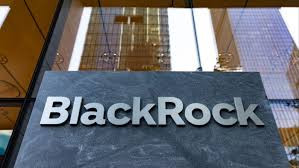
Zimbabwe’s industries this week laid out a bold plan to help authorities widen a tax base battered by 76% informalisation, urging Finance minister Mthuli Ncube (pictured) to take a serious look at global tech giants with a view to bringing them into the country’s taxation framework.
The call, contained in a detailed submission by the Zimbabwe National Chamber of Commerce (ZNCC), follows a punishing year for the economy, which has threatened to derail growth ambitions.
The ZNCC zeroed in on Google, Facebook parent company Meta, tech billionaire Bill Gates’ Microsoft and Netflix among digital service providers that should be taxed to boost revenue.
Sharing its insights into the 2026 National Budget, the chamber said a surprise rebasing of the economy mid-year had sharply shifted the tax-to-gross domestic product (GDP) ratio, demanding new revenue sources.
Even as headwinds pummelled the economy, authorities rebased Zimbabwe’s GDP to US$44,4 billion in July — up from US$35,2 billion — arguing the new figure captured emerging sectors. The revision instantly lifted per capita income above US$3 000, bringing Zimbabwe within striking distance of the US$3 500 threshold required to attain an upper middle income status under the hyped Vision 2030. It also positioned Zimbabwe as southern Africa’s fifth-largest economy, behind South Africa, Angola, Tanzania and the Democratic Republic of Congo.
But the chamber said Zimbabwe’s tax-to-GDP ratio had fallen sharply.
“Following GDP rebasing, Zimbabwe’s tax-to-GDP ratio fell from 18% to about 14%, placing the country below the lower middle income median band of 22% to 25%,” the ZNCC said.
“With 96% of total revenue being tax-based, the fiscal structure is narrow and over dependent on a limited base. The multiplicity of tax heads discourages production and investment, while further taxing compliant players can reduce actual revenue. The focus must shift toward economic-growth-led revenue expansion, formalisation, and digital transformation of tax administration.”
- Adapt or die: Drivers for transformation
- Of Zim’s untapped film tourism potential
- Power crisis hits Proplastics factory
- Women urged to take advantage of Women’s Bank
Keep Reading
The ZNCC said Treasury must “require non resident providers — Meta, Google, Microsoft, Netflix — to register for income tax on digital services consumed in Zimbabwe, in line with Organisation for Economic Co-operation and Development (OECD) best practices,” while acknowledging the country’s limited digital infrastructure.
In a way, the ZNCC is pushing government — already aggressive with its tax regime —to leave no stone unturned. The State is demanding more from the few remaining formal firms after bad policies pushed 76% of the economy into the informal sector. Zimbabwe already has one of the harshest tax environments in the region.
The ZNCC also proposed modernising tax collection through digital tools, e-invoicing, and analytics integration with telecom and banking data.
Zimbabwe’s proposal mirrors a worldwide struggle by governments to make tech multi-nationals pay their fair share of taxes.
In France, authorities introduced a 3% Digital Services Tax in 2019 on revenue generated by companies such as Google, Amazon and Facebook from French users. The move triggered trade tensions between France and the United States, but inspired similar measures across Europe.
India became one of the first emerging markets to act, introducing a 6% “Equalisation Levy” in 2016 on online advertising by non-resident firms. It expanded the tax in 2020 to cover e-commerce transactions involving global platforms — a model later studied by Kenya and Nigeria.
In Kenya, the 1,5% Digital Service Tax took effect in 2021, targeting income earned through digital marketplaces by both resident and non-resident tech firms. Nigeria followed in 2022 with a 6% tax on digital services provided by non-resident companies with significant economic presence in the country.
Across Europe, more than a dozen nations — including Italy, Spain and the United Kingdom — have imposed or planned similar taxes pending the full rollout of a global digital tax deal brokered by the OECD.
The OECD’s “Pillar One and Two” framework, endorsed by 140 countries in 2021, aims to reallocate taxing rights so profits are taxed where consumers and users are located rather than where multi-nationals book their earnings. It also introduces a 15% global minimum corporate tax.
South Africa has moved cautiously, opting instead for stronger enforcement of existing value-added tax rules on cross border digital services.
Tanzania and Ghana are studying similar paths, while the African Union is developing a continental policy to harmonise digital taxation and curb base erosion.
Globally, the challenge remains balancing innovation with fairness. While critics warn such taxes could deter investment or be passed on to consumers, proponents argue they are essential to ensure tax equity in the digital age.
For Zimbabwe, the ZNCC’s proposal signals the country’s readiness to align with evolving international norms — a step that could diversify state revenue and promote fiscal justice if implemented transparently and efficiently.
The ZNCC also proposed the introduction of a Unified Business Registration and Tax Compliance Portal linking the Zimbabwe Revenue Authority, the National Social Security Authority and local authorities to reduce compliance costs. It proposed a one year presumptive tax amnesty for small players entering the formal net, and a 5% advance tax on digital content creators and gig economy workers “to avoid double taxation.”
It said digitalising compliance, formalising new economic segments and plugging leakages could raise the tax-to-GDP ratio to between 20% and 22% by 2027, bringing Zimbabwe closer to its Vision 2030 targets.
Zimbabwe traditionally presents its budget for the following year in November, although it has sometimes unveiled it in December. Ncube is currently consulting a cross-section of stakeholders for the 2026 budget.











